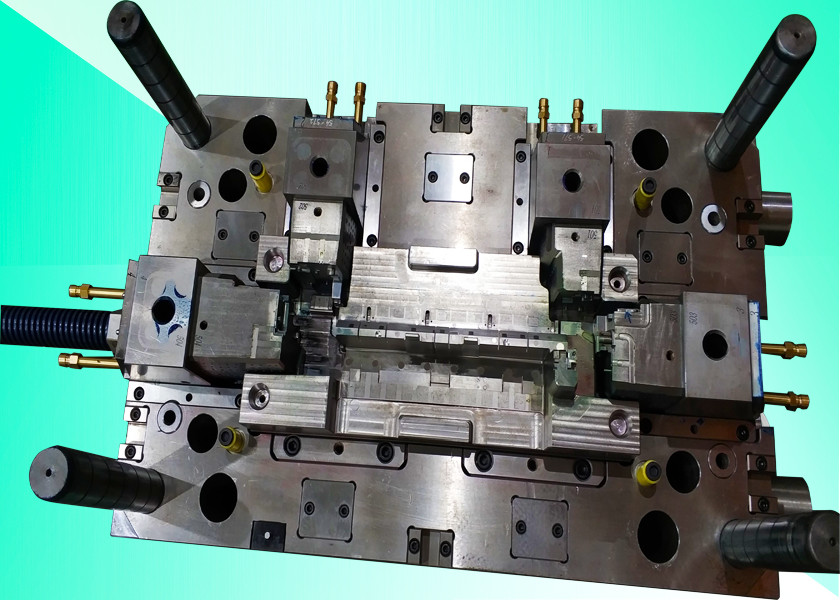In the current landscape, the push for green initiatives in manufacturing has reached a critical point. Organizations across various industries are exploring methods to boost operational effectiveness but also minimize their ecological footprint. One such method that has gained significant traction is the technique of injection molding. This technique is recognized for its efficiency and accuracy but also for its ability to promote eco-friendly practices in the manufacturing process.
Injection molding services offer a variety of benefits that align with the principles of green philosophy. By optimizing material usage and minimizing waste, this method has become a cornerstone for businesses looking to adopt sustainable production methods. From the ability to reuse materials to less energy consumption during the production cycle, the sustainable advantage of injection molding is transforming the manufacturing industry. Adopting these methods not only supports a healthier planet but also establishes businesses as pioneers in sustainability within their industries.
Benefits of Green Injection Molding
Green injection molding considerably reduces waste during the production process. The precision of this method allows manufacturers to create products with minimalistic excess material, which not only saves resources but additionally decreases landfill contributions. By enhancing the use of raw materials, companies can operate with greater efficiency, reducing their environmental impact and enhancing their sustainability profiles in the market.
Energy efficiency is yet another advantage offered by green injection molding. Modern injection molding machines are designed to be increasingly energy-efficient, utilizing cutting-edge technology to reduce power consumption during the production cycle. This reduction in energy use not only helps the environment but can also lead to considerable cost savings for businesses over time, making it an financially sustainable option for sustainable production.
Furthermore, green injection molding supports the use of recyclable and biodegradable materials. By integrating these materials into their processes, manufacturers can produce items that are more friendly to the environment at the end of their life cycle. This transition towards eco-friendly materials aligns with rising consumer demand for sustainable products and sets companies apart as leaders in responsible manufacturing practices.
Advancements in Green Materials
The transformation of sustainable materials in the injection molding process is revolutionizing the industry. Producers are increasingly embracing biological plastics made from renewable resources, such as cornstarch and sugarcane. These resources lessen reliance on fossil fuels and help lower the environmental impact of the manufacturing process. Their ability to decompose also adds to reduced waste plastic, making them an attractive option for environmentally conscious consumers.
Furthermore, recycled plastic materials are receiving attention in the injection molding industry. By recycling post-consumer or post-industrial plastics, producers can create high-quality products without the need for virgin materials. This not only preserves natural resources but also redirects waste from landfills. Firms are investing in innovations to improve the properties of recycled plastics, ensuring they meet the performance standards required for various uses.

Advancements in additives also play a important role in enhancing the environmental friendliness of injection molded products. Manufacturers are exploring bio-based additives that improve the strength, longevity, and performance of sustainable resources. These advancements allow for better product quality while maintaining a focus on environmental responsibility. As the demand for more sustainable products grows, the integration of these innovative resources into the molding process emphasizes the industry's dedication to a more eco-friendly future.
Upcoming Developments in Eco-friendly Manufacturing
As the worldwide focus on sustainability intensifies, injection molding services are changing to incorporate more environmentally friendly practices. Manufacturers are increasingly adopting biodegradable and repurposed materials, which not only lessen reliance on oil-derived plastics but also minimize waste. This shift is motivated by consumer demand for eco-conscious products, prompting businesses to create and offer greener options without compromising quality or effectiveness.
Another significant trend is the incorporation of cutting-edge technologies to enhance power efficiency throughout the molding process. Techniques such as predictive maintenance, intelligent sensors, and automation are being adopted to streamline production cycles and reduce energy use. These technological advancements not only lower operational costs but also contribute to a smaller carbon footprint, making this molding method a more eco-conscious choice for producers.
Lastly, a movement towards a circular economy concepts is reshaping the field of molding processes. This method encourages manufacturers to reconsider product lifecycles, focusing on design for recyclability and end-of-life management. By creating products that can be easily taken apart and reused, firms can seal the loop on resources usage, greatly minimizing waste and advocating for eco-friendly manufacturing practices in the long run.
